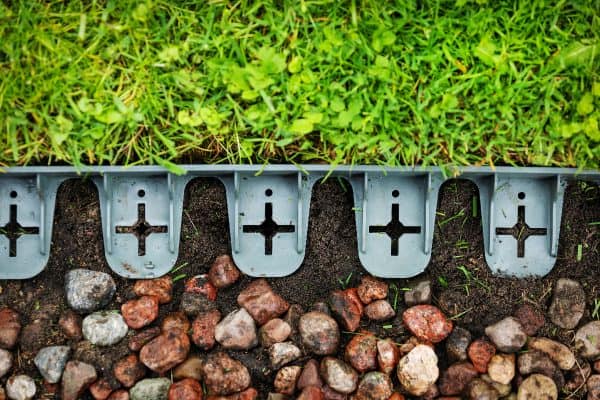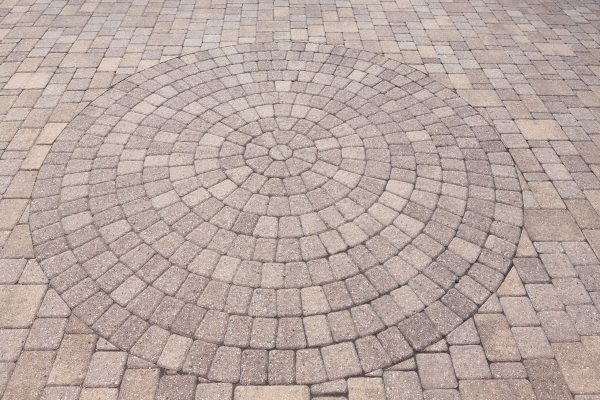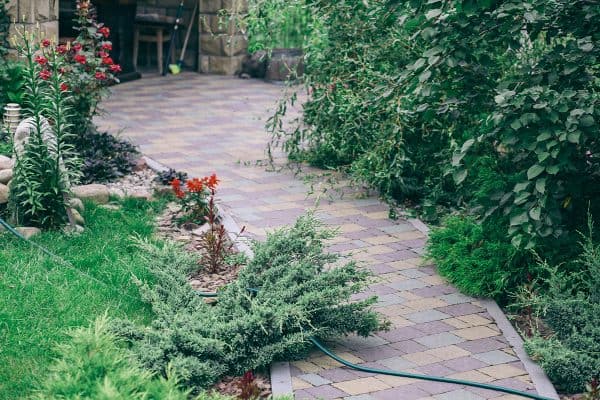A fall occasioned by too-smooth flooring can be fatal. In fact, slip and fall accidents result in thousands of emergency room visits yearly. If you're thinking of installing limestone pavers and you're not sure if they're slippery or not, you've come to the right place. After thorough research, here's a reliable answer we found.
Limestone pavers are a go-to choice in outdoor design. Just like most natural stones, it can be slippery when wet but this depends on the type of finishing. Honed-finished or matte limestone is not slippery and is safe to walk on when wet.
This article answers your questions about limestone in detail and will hopefully aid you in making the right choice of paving for your patio, pool deck, and other outdoor spaces. So keep reading to learn more.
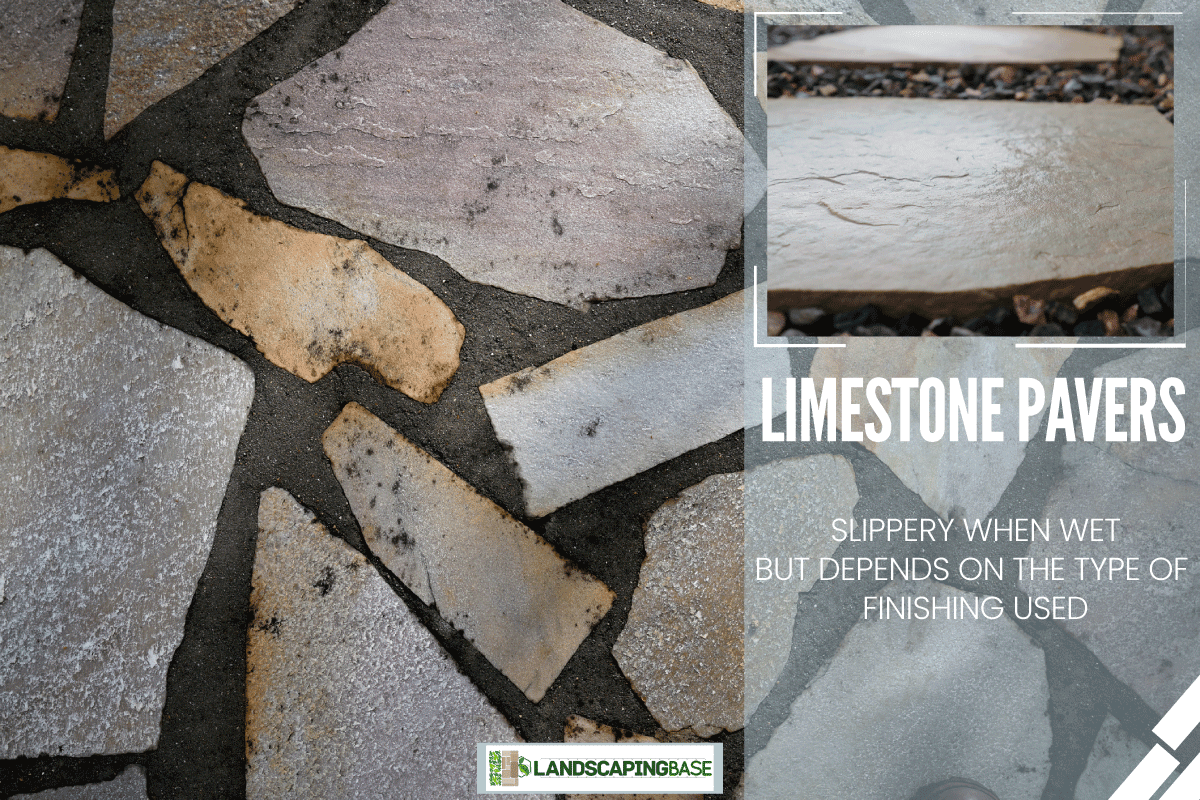
What Are Limestone Pavers?
Pavers are key components of outdoor designs. There are however different kinds of pavers with varying slip-resistance properties, and this has to be considered while making design decisions.
Limestone is a sedimentary rock whose primary composition is calcite, a calcium carbonate mineral. It has a variety of uses including as a building material. Most limestones have a granular texture that is rough to touch.
Because limestones are formed in a variety of ways, different types of limestones exist, but with one defining characteristic – a composition of at least 50% calcium carbonate.
Pavers refer to any thick tile specifically designed for floors. Limestones are a common paving choice. Owing to their natural origins, limestone pavers are very similar in look and feel to traditional brick and stone. They come in a variety of colors as well - grey, blue, brown, tan, and white, to mention a few.
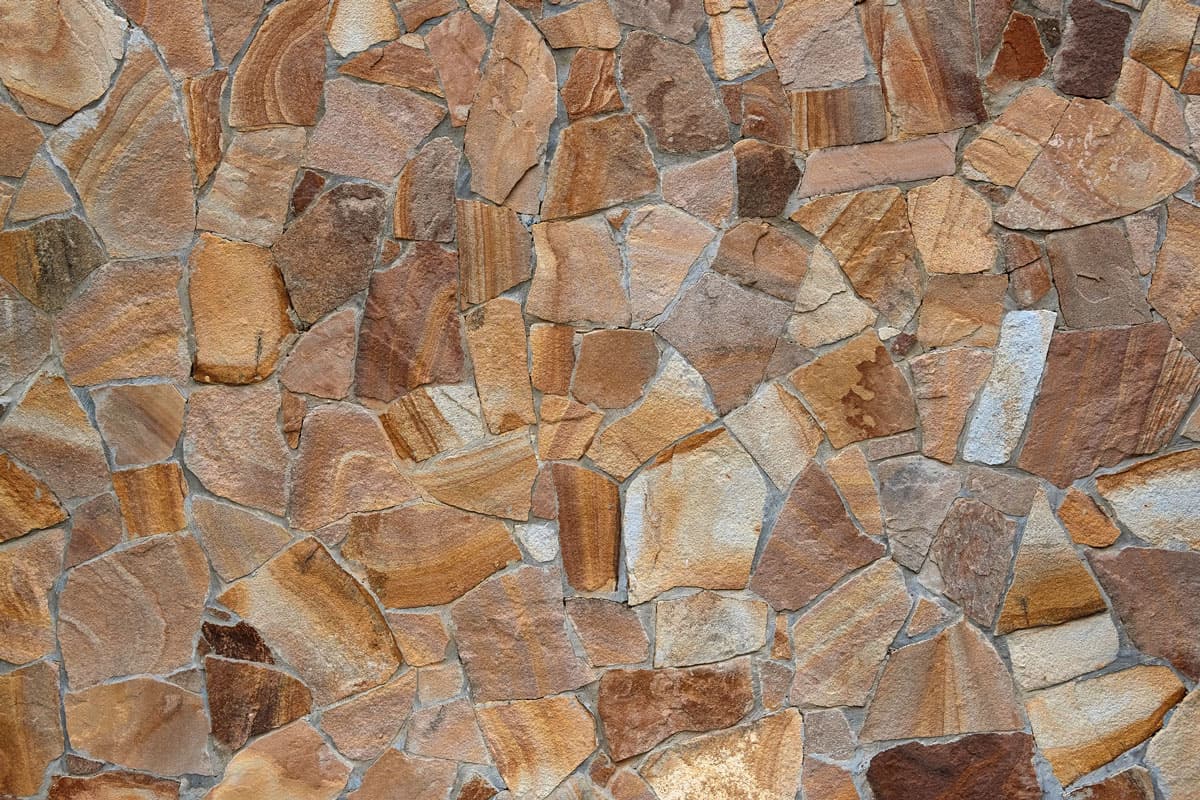
Are Limestone Pavers Slippery?
A slippery paver can cause domestic accidents. Slip considerations are thus vital in choosing pavers. Generally, limestone pavers have good slip resistance when maintained properly.
However, due to the different types of limestone that exist with differing compositions, the degree of slip-resistance of limestone is largely dependent on the composition of the particular limestone used.
A key factor is also the finish of a limestone paver. While shiny polished limestone pavers are very slippery because the polish fills the paver's pores, natural riven limestone, honed limestone and travertine are less slippery.
In choosing limestone pavers, the composition and finish should definitely be kept in mind. You should also note that limestone pavers can get slippery over time due to expected wear and tear of long usage.
Is Limestone Slippery Around Pools?
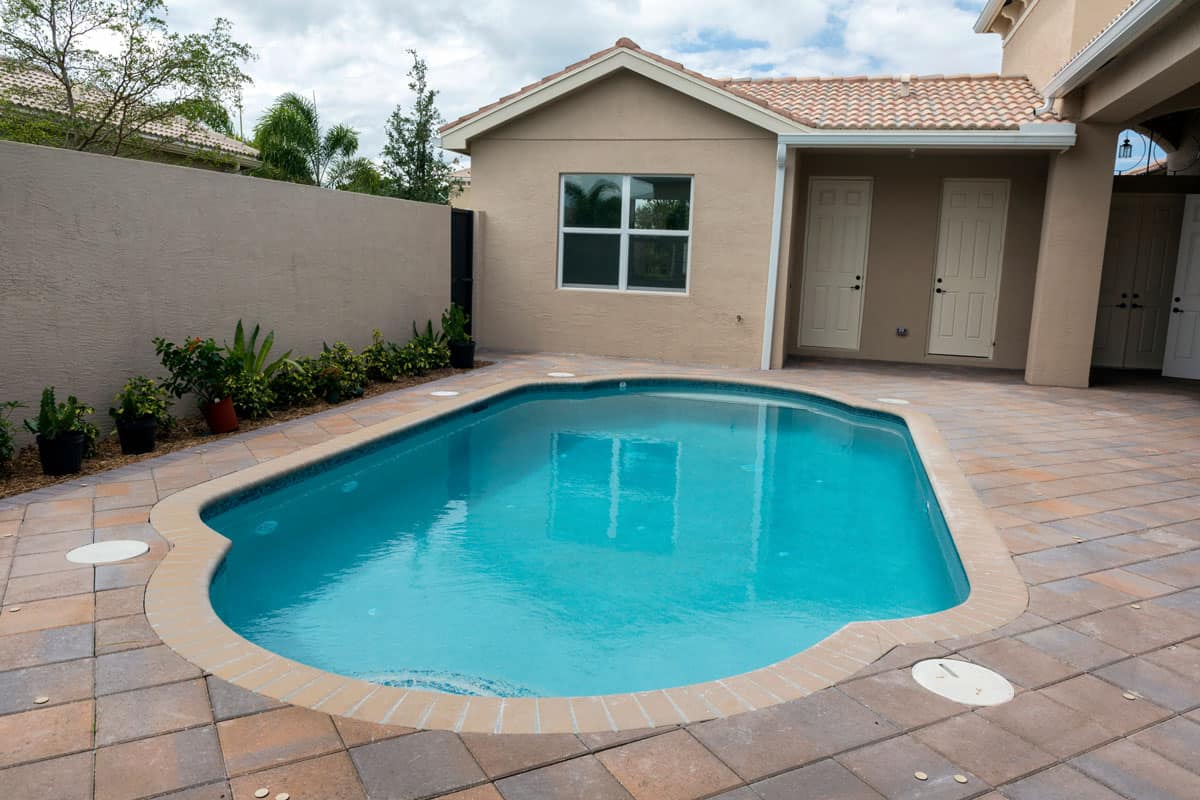
Limestone pavers with shiny polished surfaces typically get slippery when wet. However, honed limestone and travertine do not get slippery even in the wet surroundings of pools. It all depends on the finishing technique used.
In choosing limestone pavers for pool decks, particular attention must be paid to the finishing technique used. Fitting finishes for pool decks include bush-hammered, sandblasted, brushed, a combination of a sandblasted, brushed finish, and flamed finishes. These finishes make the limestone more slip-resistant.
Is Limestone More Slippery Than Sandstone?
Limestone and sandstone are both used in paving and are options that tend to have a similar natural look and feel. However, while limestone and sandstone are both natural stones, they differ in composition and consequently in slippage.
A key difference between limestone and sandstone is that sandstone pavers are generally more riven, sometimes with chiseled edges, making sandstone slightly more slip-resistant than limestone.
Importantly, similar to limestone, sandstone’s slip resistance depends greatly on the finish used. Smooth finishes are more slippery as opposed to ridged finishes. So while sandstone is less slippery than limestone, the difference in the slip resistance of both stones is negligible.
Should I Seal Limestone Pavers?
Opinions are different on the necessity of sealing limestone pavers. While experts generally recommend sealing the all-natural stone, sealants may alter the stone’s natural appearance.
However, limestone is known to be highly porous and permeable. Stone porosity measures the volume of pores in a natural stone in comparison to its total weight. It is usually expressed as a percentage.
The fewer the pores, the lower the porosity. Higher porosity stones like limestone can easily be stained and damaged as external material gets into the pores easily. Stone permeability is the measure of the ease of movement of water from one pore to another within a natural stone.
Stone porosity and permeability are related, as stones with high porosity have high permeability as well. Limestone can thus be easily stained and damaged. The best way to prevent staining and damage on limestone pavers is sealing.
Sealing provides a layer of protection to ensure external material that can damage or stain the limestone paver does not come in contact with the paver itself. The risk of permanent damage and staining to an unsealed paver far outweighs the risk of the sealant changing the paver’s appearance. So it is advisable to seal limestone pavers.
Is Limestone Good For Patios?
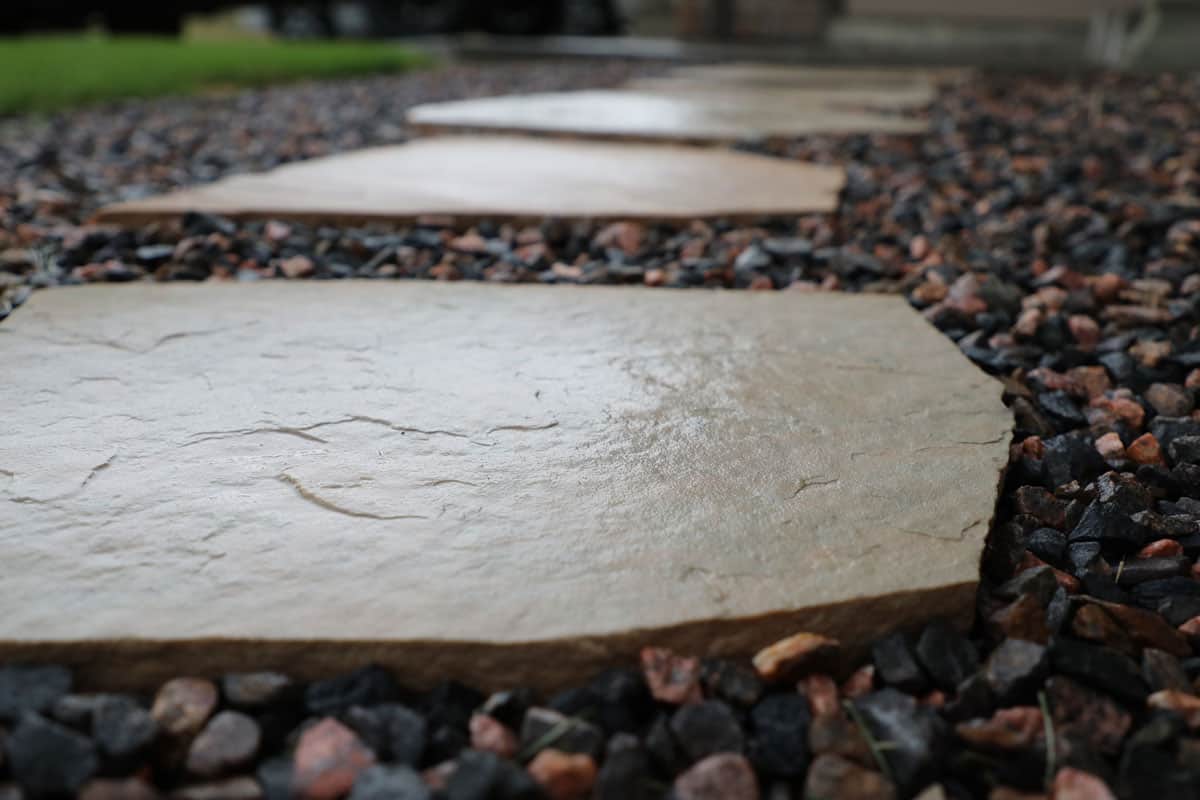
Limestone pavers are aesthetically pleasing and because they are made of natural stone, they fit right in with the outdoors. Based on the looks, they are a fantastic choice for patios.
The concern homeowners might have with pavers for outdoor spaces like patios is durability since patios are open to the elements. Limestone pavers are an excellent choice that takes care of this concern. They are notably durable and frost-resistant, especially pavers with the right composition and finish.
Limestone might however be susceptible to weathering especially from acid rain, the partial covering that most patios have to mitigate this to an extent.
Also, limestone is insulating because it stays at a constant temperature at all times. As such, limestone pavers would not get too cold in cold seasons or hot to the bare feet in warm weather. This is just perfect for an outdoor space like a patio that tends to have quite the human traffic.
It's slip resistance when done with a proper finish also prevents slip hazards from wet feet or when it rains. So if you're looking to use limestone pavers for your patio, you'll certainly get your money's worth.
Are Limestone Pavers Strong?
Pavers made of natural stone are generally stronger than other kinds such as concrete pavers. Limestone pavers are particularly strong having a minimum flexural strength of 21 MPa.
The flexural strength of a material refers to the highest amount of pressure that can be applied in bending that material before it yields. Flexural strength usually determines how much load a beam-like material can withstand by showing the breaking point when the load is placed on the paving.
The high flexural strength of limestone pavers means that they are strong enough to withstand a lot of weight and are certainly suited for domestic applications that involve placing heavy material on flooring.
How Long Will Limestone Paving Last?
A paver's durability is determined primarily by inherent strength, water absorption, and pore space. Limestone has high flexural strength, and a water absorption rate. While limestone is notably highly porous, its strength and fair water absorption rate which can be improved with treatment make it durable as a paver.
Limestone paving can thus last for several years without any need for refurbishing. It is worth noting that where pavers get damaged, just the affected pavers require changing and not the entire paving.
Can You Use Limestone For a Driveway?
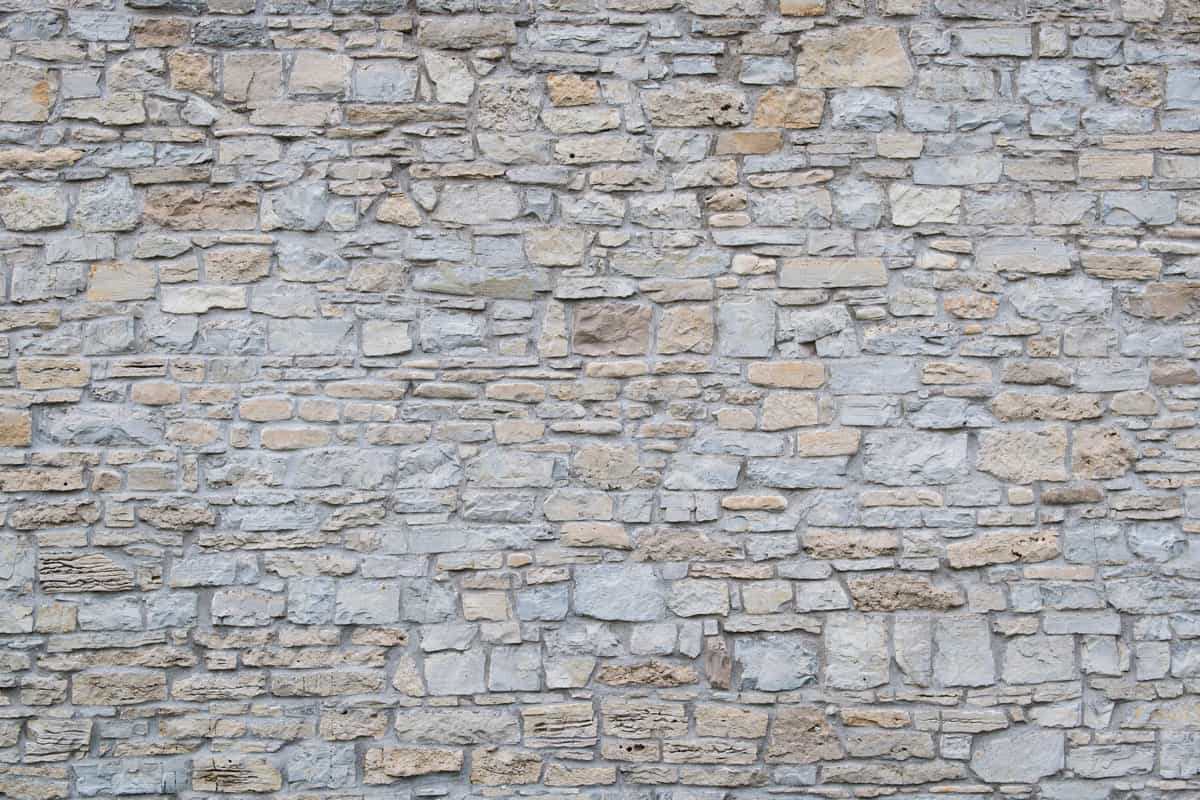
In considering driveway paving, important considerations are the ability to withstand the elements and vehicular pressure, resistance to common driveway stains like oil spills, decomposing leaves from overhanging trees and shrubs, and tire marks.
Also preferable is an aesthetic that blends well with both the house color and style as well as the front garden. The ideal paving for a driveway will thus have high strength and anti-stain properties, and be durable.
Limestone has these features. It has high flexural strength and is durable. However, it is easy to stain and susceptible to weathering. When exposed to acidic rain, it can lose precision in its edges.
While not much can be done to rejuvenate weathered limestone, its susceptibility to staining can be easily combated by cleaning with proper materials. Despite its disadvantages, its durability and strength make limestone paving a good choice for driveways.
To Sum Up
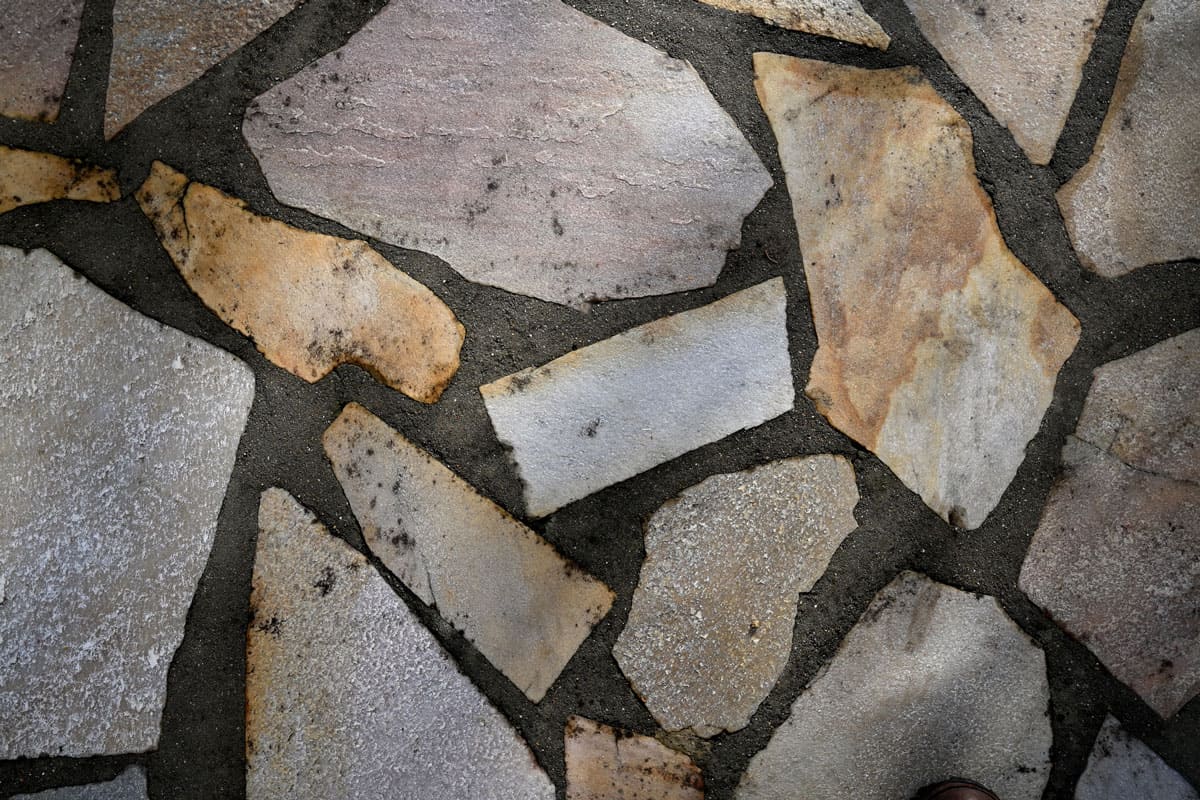
Limestone is a great choice for paving because of its looks, durability, and strength. Where it needs to be used in wet areas like open spaces or the poolside, the proper finishing ensures slip-resistant limestone paving.

